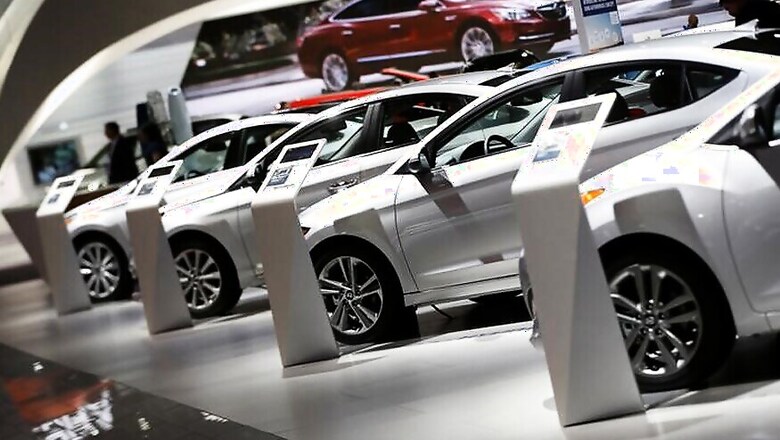
views
Hyundai Motor Company plans to set up a car assembly plant in Pakistan in a joint venture with local textile firm Nishat Mills, an official from Nishat said on Friday.
Hyundai's return to Pakistan will boost the government's efforts to shake up the Japanese-dominated car market and loosen the grip of Toyota, Honda and Suzuki, who assemble cars in Pakistan with local partners.
Hyundai and South Korea's Kia Motor used to assemble cars in Pakistan until 2004 but withdrew after their local partner Dewan Farooque Motors Limited went bust.
It was not clear how much capital Hyundai, South Korea's largest automaker, would itself invest in the Pakistani venture.
Representatives for Hyundai could not immediately be reached for comment.
Nishat Mills is a subsidiary of Nishat Group, a giant in the Pakistani banking, textiles, energy and cement sectors. Its share price rose 1.4 percent after the announcement.
"Today we have signed a memorandum of understanding between the two companies and we will set up a ... project for the assembly and sales of both passenger and commercial vehicles," Nishat Mills company secretary Khalid Chauhan said.
Nishat Mills filed a statement with the Pakistan Stock Exchange saying the deal was "subject to applicable statutory and regulatory approvals".
Last year, French carmaker Renault agreed to invest in a new factory in Pakistan and South Korean carmaker Kia Motor Co said it would start assembling cars in a joint venture with Karachi-listed Lucky Cement, part of the vast conglomerate Yunus Brothers Group.
The government believes increased competition should bring down exceptionally high car prices in Pakistan, and in March it introduced a new auto policy favouring new entrants into the market by offering generous import duties.
The incentives have angered existing market players, some of whom have said publicly they should get similar terms.
Pakistan, with a population of nearly 200 million people, is a potentially huge market, but just 180,000 cars were sold in the 2014/2015 fiscal year. That compares with more than 2 million passenger vehicles a year in neighbouring India.


















Comments
0 comment